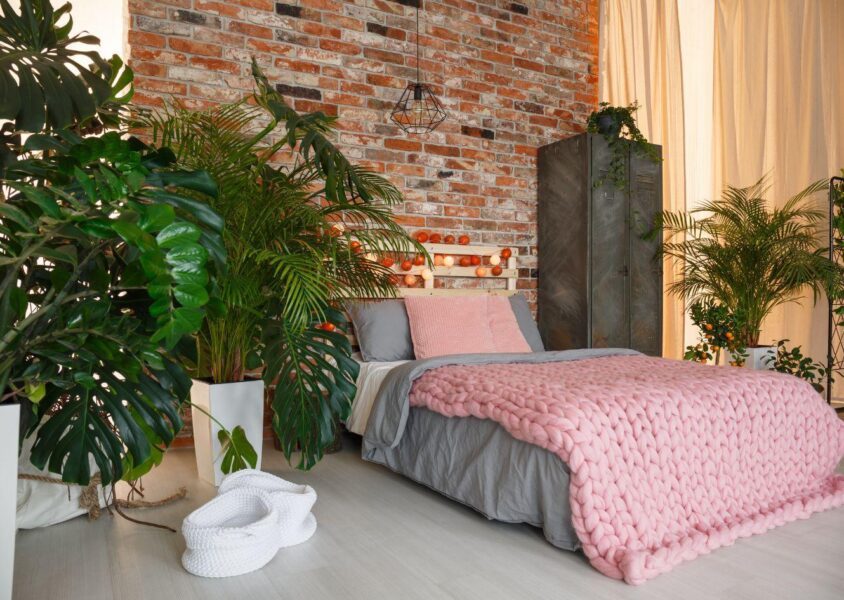Keeping Plants In The Bedroom

Plants can be a great addition to a bedroom, as they can help improve the air quality and add a touch of nature to the space. Here are some potential benefits of having plants in the bedroom:
Improved air quality: Some plants, such as peace lilies and snake plants, are known for their ability to filter out pollutants from the air and improve the overall air quality in a room.
Stress relief: The presence of plants has been shown to have a calming effect and can help reduce stress and improve overall well-being.
Improved sleep: Some research has suggested that the presence of plants in the bedroom may help improve sleep quality, as the natural presence of plants may help create a relaxing atmosphere.
Aesthetics: Plants can add a decorative touch to a bedroom and can help create a more welcoming and comfortable space.
Please keep in mind that not all plants are suitable for the bedroom, as some may release allergens or toxins that can be harmful to sleep. It’s a good idea to research which plants are best suited for indoor environments and to choose plants that are low maintenance and easy to care for.
These are a few plants that are known for their ability to improve the air quality and create a calming atmosphere in the bedroom:
Snake plant (Sansevieria trifasciata): This low-maintenance plant is known for its ability to filter out toxins from the air and improve the overall air quality in a room. It also requires minimal care and is able to thrive in a variety of lighting conditions.
Peace lily (Spathiphyllum): This plant is known for its ability to absorb pollutants from the air and improve the overall air quality in a room. It’s also relatively low-maintenance and thrives in moderate to low light conditions.
Aloe vera (Aloe barbadensis): This plant is known for its air-purifying qualities and is also easy to care for. It thrives in bright, indirect light and requires minimal watering.
English ivy (Hedera helix): This plant is known for its ability to absorb toxins from the air and improve the overall air quality in a room. It’s also relatively low-maintenance and thrives in moderate to low light conditions.
Spider plant (Chlorophytum comosum): This plant is known for its ability to absorb pollutants from the air and improve the overall air quality in a room. It’s also relatively low-maintenance and thrives in bright, indirect light.
While plants can be a great addition to a bedroom, some plants may release allergens or toxins that can be harmful to sleep. Here are a few plants that you may want to avoid in the bedroom:
Jasmine (Jasminum spp.): While jasmine plants are known for their fragrant flowers, they can also release pollen and other allergens that can cause respiratory problems and disrupt sleep.
Eucalyptus (Eucalyptus spp.): Eucalyptus plants are known for their strong, pungent aroma, which can be overpowering in small spaces such as a bedroom. They can also release volatile organic compounds (VOCs) that can be harmful to sleep.
Ficus (Ficus spp.): Ficus plants are known for their ability to improve air quality, but they can also release allergens that can cause respiratory problems and disrupt sleep.
Nightshade plants: Nightshade plants, such as tobacco (Nicotiana spp.), tomatoes (Solanum lycopersicum), and potatoes (Solanum tuberosum), contain alkaloids that can be harmful if ingested and may cause sleep disruptions.
You should research the specific care requirements and potential health impacts of any plant before bringing it into your bedroom. If you have allergies or other sensitivities, it may be a good idea to avoid plants that are known to release allergens or toxins.